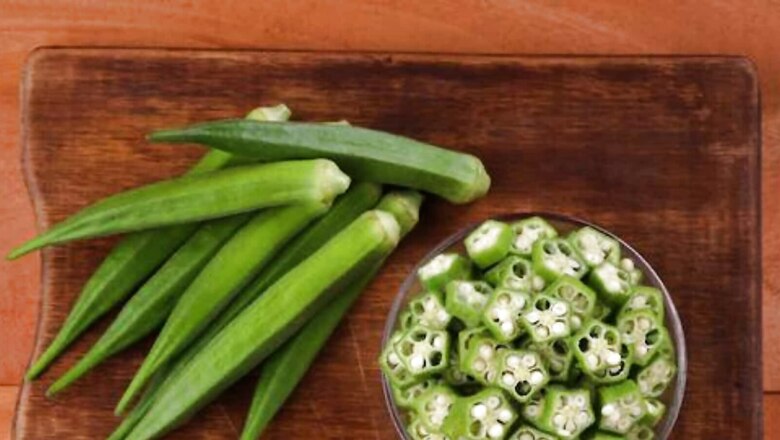
views
Cooking bhindi, okra, ladyfinger, or whatever you want to name, has been a win or fail for many of us. There are times when we have wonderfully seasoned, crisp green beauties begging to be devoured with chapati and dal. Then there are times when no matter what we do, they just transform into a sticky, slimy mess, making us want to cry in frustration.
Only mums know the secrets and tactics that can miraculously transform your okra into a great one. But guess what we are here to tell you that super tips and tricks, when in urgency or need.
Soak it in vinegar
Some claim that immersing Okra in a Vinegar and Water solution (one cup Vinegar in a litre of water) for an hour will help decrease slime. We’ve never attempted it since we’ve never needed it, but if you got an extra hour, you can give it a shot. Dry it well before chopping it.
Dry hands and knife
While chopping the Okra, make sure your hands are dry. Wiping your hands dry is just as crucial as drying the Okra before cutting it. Also, make certain that the knife and cutting board are both dry. No water contact when cutting. While cutting it, there will be some slime, but simply disregard it and go on.
Add a souring agent
This is the greatest method to ensure that your Okra is not slimy at the end of the cooking procedure. Add a souring agent of choice or based on the recipe you chose within 5-10 minutes after putting the Okra to the pan. Lemon juice, vinegar, amchoor, or even tamarind might be used. The souring agent reduces the sliminess right away and keeps the greens delicate and crisp.
Do not cover
The general guideline is that Okra should not be covered. Why? Covering a dish while cooking retains steam and enhances moisture. And we all know that wetness equals slimy okra. So, when creating any type of Okra stir fry, avoid covering the pan.
Add salt in the end
This tip is related to the last one in that it is important to cook Okra with as little moisture as possible. Salt draws moisture or water out of anything, whether it’s a vegetable or a piece of meat. And even more so in Okra, thus it’s critical to apply salt after the cooking process.
Read all the Latest Lifestyle News and Breaking News here















Comments
0 comment